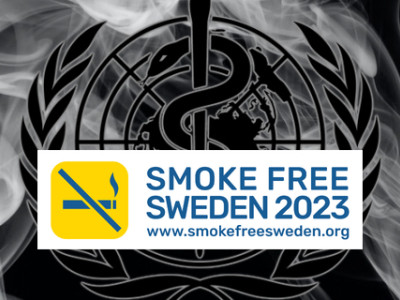In ‘The politics of scientific publishing’, Sarah Cooney pointed out: “There are lots of problems with peer review. Science publishing is this massive industry built on the back of unpaid work by volunteers, including the peer reviewers. The peer review community is under more and more pressure. Journals are receiving more and more submissions all the time, so what they are starting to do to cope with this and reduce the burden on their communities is to reject without review.”
She warned against “predatory journals” that represent the “downside to the open access business model” and led to the barrier of entry becoming “super low”.
Sarah continued: “Predatory publishers, rather than having high-quality peer review, they don’t do any peer review or they might have a peer reviewer who knows nothing about this subject area. Instead, they are motivated solely by collecting a fee from the author. So, organisations may need help to spot predatory journals and the risk to publishing in these places is that it can undermine your very hard-won credibility.”
Professor Nick Crofts agreed. The Editor-in-Chief of Harm Reduction Journal said: “Peer reviewing has become a real issue for most journals. It’s a challenge finding people who are prepared to review papers, and finding people who are qualified to review or want to learn how to review. It’s not something that anyone can do, it’s a skill you need to learn and master. My observation in a lot of academic public health is that the whole idea of mentoring seems to have got lost somewhere. Mentoring people into writing, mentoring people into reviewing. We have a process developing now to mentor young, early career researchers, helping them with writing and reviewing.”
In another room, conference attendees were discussing ‘Ten years of science: what have we learned’.
Bernd Mayer, a Professor of Pharmacology and Toxicology at the University of Graz, told the audience: “Society should accept, and this is an important point, society should accept that there's a certain amount of people who wish to consume nicotine, who find some pleasure with nicotine consumption, who want to do that. And it applies to teenagers as well as to adults. We will always have a certain fraction of the population who want to consume nicotine for whatever reason, and you can ban it as much as you want, it's like smoking - we have smoking bans all over the world and yet we have 10%, 15%, 20% of teenagers smoking. Where does it come from? Because they want it.”
Brown University’s Jasjit Ahluwalia said we're all driven by agenda-driven science to some extent, adding: “it's a little bit dangerous for all of us. Science should be science and it should be of the highest quality.”
Discussing ‘Inequality of access - how do we achieve a level playing field?’, behavioural scientist Cheryl Olson warned: “When I look at the literature, the research that’s out there, and I look at the people who are on the low-income healthcare programme in the US, Medicaid, their smoking rates are absolutely stagnant. They haven’t changed in years. People who have disadvantages, low education, mental or physical health challenges, their smoking rates are stagnant. The more challenges people have, the worse it is. Unless you look at the research, you don’t know about this. When people look at the bigger picture in the US, they think smoking rates used to be so high, and now they are so low - and we have nicotine replacement therapies - why don’t people just quit? And my response is always: look at the data. If they could have quit they would have by now.”
David MacKintosh, host of the session, added: “The mental health sector in the UK adopted tobacco harm reduction quite early, because they recognised it could make the lives of their service users much better. It has been quite a success, but like a lot of tobacco harm reduction successes, no one shouts about it.”
In the final session, ‘Science, regulation and morality’, Professor Marewa Glover commented: “Obviously you could say that what's most immoral is the tobacco companies continuing to sell a product that kills people. But I see morals as being more on a dual level. The most immoral thing to me is that I know many people in tobacco control, public health, they know these products save lives and they are blocking access to them. They are facilitating increased rates of disease and premature death among people from 35 years and up. I think that this is the most immoral thing that's going on.”
Arielle Selya, a behavioural scientist who specialises in tobacco use behaviour among youth and adults expressed her thoughts: “Science is just not convincing to some people. Fundamentally, as humans we are not always rational, and I think that it's not the science that's necessarily driving a lot of the opposition. So, I think hearing consumer voices is really valuable, to tell those stories. There's plenty of anecdotes out there that are alarmist about EVALI or youth vaping, but in the last panel I watched Lindsey [Stroud] moderate some really compelling stories from people who used to smoke and found great success in vaping, they credit it with saving their lives, so I think having those personal anecdotes out there is really important.”
Dr. John Oyston, a physician and anaesthesiologist from Canada lamented: “We have an awkward situation in which the people in the [safer nicotine product] industry, the people who run vape shops, are not allowed to tell their potential customers that vaping is safer than cigarette smoking. We're banning the industry from communicating effectively with consumers. At the same time, physicians are unable and unwilling to communicate effectively. It's not surprising that Canadian consumers, and probably consumers around the world, are very confused and very unaware of their options.”
References:
- GFN23 - https://gfn.events/
Dave Cross
Journalist at POTVDave is a freelance writer; with articles on music, motorbikes, football, pop-science, vaping and tobacco harm reduction in Sounds, Melody Maker, UBG, AWoL, Bike, When Saturday Comes, Vape News Magazine, and syndicated across the Johnston Press group. He was published in an anthology of “Greatest Football Writing”, but still believes this was a mistake. Dave contributes sketches to comedy shows and used to co-host a radio sketch show. He’s worked with numerous vape companies to develop content for their websites.
Join the discussion
Harm Reduction For The Rich
The United Kingdom risks becoming a harm reduction country only for the wealthy, according to Michael Landl of the World Vapers’ Alliance
CAPHRA Highlights Tobacco Control Flaws
The Coalition of Asia Pacific Tobacco Harm Reduction Advocates highlights the flaws in tobacco control which has led to the rise of black market in Australia
A Missed Opportunity at COP10
The Smoke Free Sweden movement says that COP10 was a missed opportunity to save millions of lives
COP10: Promote Tobacco Harm Reduction
Experts with Smoke Free Sweden are emphasising the urgent need for a Tobacco Harm Reduction approach at COP10












